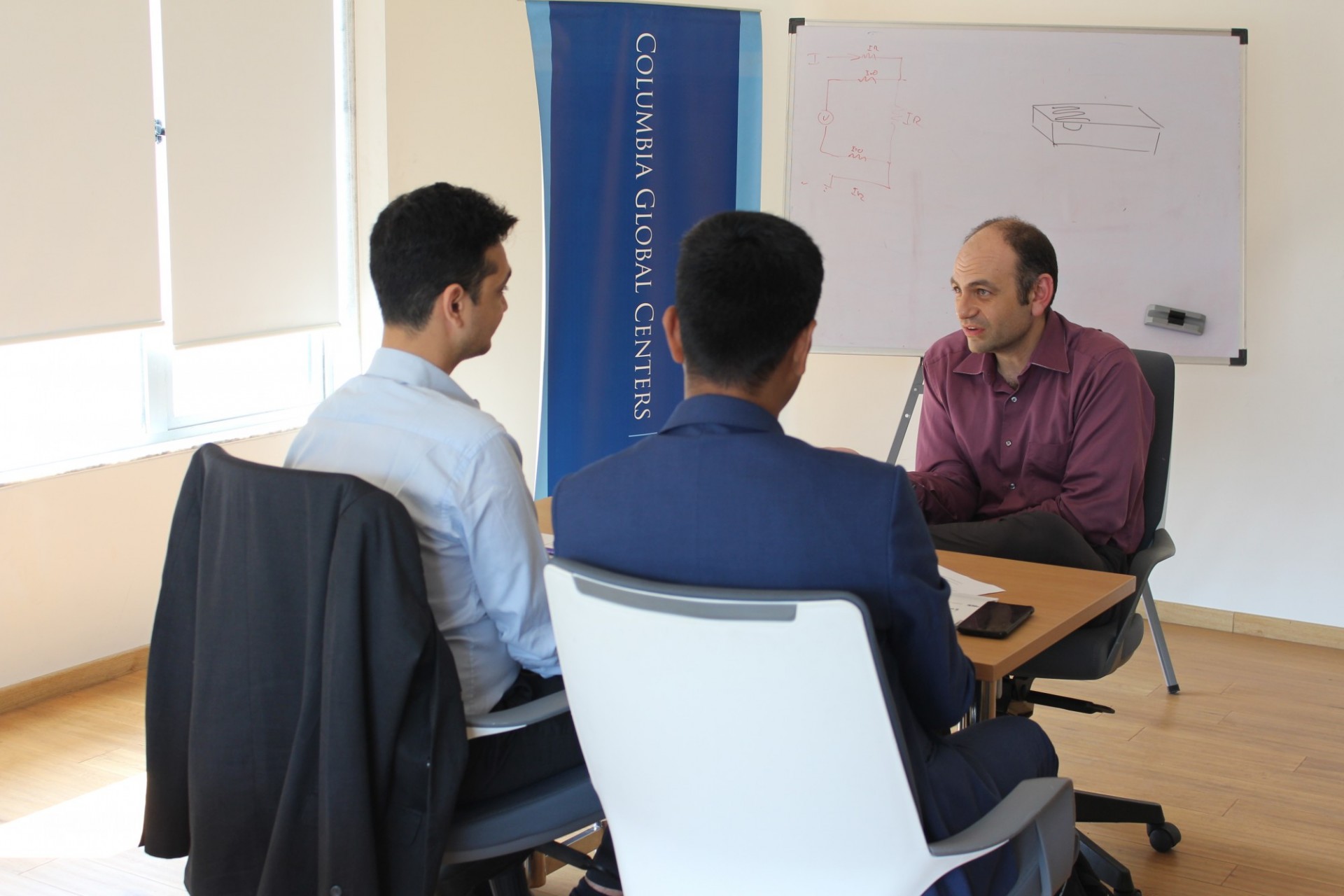Mentoring Entrepreneurs: An Interview with Professor Ioannis Kymissis

Innovation can help address changing market needs, solve complex environmental challenges, and build social equity. A strong believer in innovation, Ioannis Kymissis, Professor and Chair of Columbia Engineering’s Department of Electrical Engineering, has filed numerous patents and supported multiple startups throughout his career. He has been a mentor to Urban Works companies from India and the US since 2018. During online mentoring sessions and in-person visits to India, he has coached entrepreneurs on topics including the Internet of Things (IoT) and sensors, sales and customer relationships, and the basics of intellectual property. In an interview with the Center, he speaks about innovation, startups, and Urban Works.
How did your journey with Urban Works begin? What has been the biggest takeaway?
IK: Having participated in an I-Corps program several years ago, I jumped at the opportunity of becoming a part of Urban Works. Also, it was great to collaborate with the Global Center in Mumbai. I remember the first cohort where Columbia University students had the chance to build a product for the Indian market and it was satisfying to see them learning a lot during this process. The student teams from Columbia and the more advanced Indian teams mutually benefited from their interactions.
What has been your involvement in the entrepreneurship ecosystem?
IK: Perhaps the most significant beyond Urban Works has been my engagement with the NSF I-CORPS program, which provides a range of resources and programming for new entrepreneurs looking to transition technology from the university to commercial application. We are very fortunate that Columbia is a partner for the NYCRIN, which is the New York City Regional Innovation Node, and I am now the Columbia lead for that partnership. I’m also an advisor to a number of accelerators/incubators (such as the NewLab) and co-direct Columbia’s Makerspace and find that those informal programs can often reach especially new entrepreneurs that are unsure where to get started.
What do you think of the Indian startup ecosystem and how does it compare to the US?
IK: In the US, there are a lot of accelerators readily investing small to moderate sums of money in young startups, whereas that wasn’t the case in India until a few years ago. Today, Indian entrepreneurs feel confident of creating independent startups where they can work full-time. This is because of an increased number of structured programs to support them. With tech giants Google and Microsoft, among others, supporting innovations, we now have companies starting in parallel in the US and in India.
What is the role of patents and IP in general as necessary processes in furthering innovation?
IK: While there are some areas in which it’s possible to use first mover advantages to start a business, patents are especially important in concepts relating to the physical sciences. For a small business, patents are usually the only protection against a large company applying R&D resources to overcoming any lead that a small company might have in launching a new technology. Even if a small company has the best idea in the world, investors are reluctant to get involved unless there is some protection against loss of the business following development of the technology and market, and for many cases patents are the only protection of this type available.
Where do you see the urban safety and sustainability sector headed in the near future?
IK: Water is a very precious resource, especially in densely populated regions and therefore we will continue to require solutions that solve this issue. We had Agua in the previous cohort, which deals in optimizing water supply to ensure equitable access. The other sector of importance is transportation. Because of its informal nature in India, monetization is difficult. We saw one of our alumni companies, ValetEZ, attempt to solve the problem of parking and traffic management in crowded metropolises.
What do you think of the Urban Works model and how can it evolve?
IK: It is really unique – it brings together specific strengths such as mentorship from Columbia University, the convening power of the Mumbai Center, and the ability to spin off businesses for the Indian market. Student and alumni teams can fundraise in the US and deploy in India. One way the model can evolve is to venture ahead in other parts of India beyond just the three cities of Delhi, Mumbai, and Bengaluru.
Finally, what is the one piece of advice you would give to a tech entrepreneur?
IK: I have seen a lot of entrepreneurs, especially students; hesitate to get started on an idea because they wait for the perfect set of conditions. I like to tell them – don’t wait for perfection! Start imperfectly, get course corrected by the market, and if you do fail, you can look for alternatives quickly. Urban Works is one such program that allows entrepreneurs to test their ideas in the real world by giving money and mentorship. At one of our previous startups – Innerhour – the founders showed courage in leaving their high-paying jobs to take a risk that was ultimately rewarded, and I can say that Urban Works put them on a strong growth path.